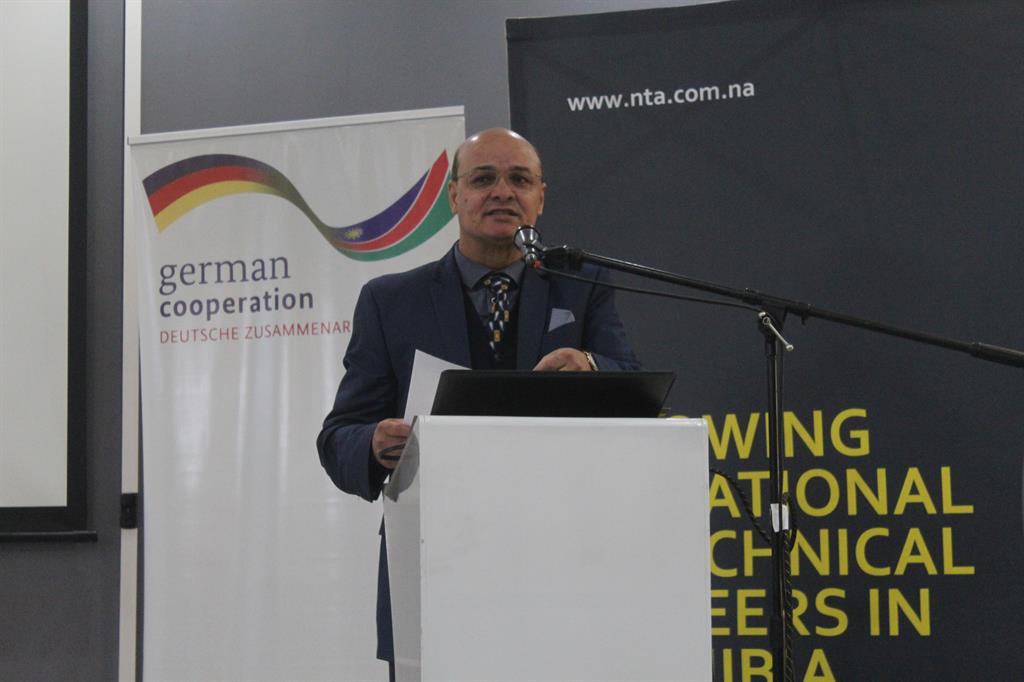Graduate survey launched
This survey will help to reduce structural unemployment and improve productivity, among others.
Elizabeth Joseph
The Namibia Training Authority (NTA) has launched the first-ever graduate survey.
The survey is a first-of-its-kind for Namibia and aims to secure an educated and skilled labour force to take full advantage of the growth and value-addition opportunities in the economy.
This is according to Dr Itah Kandji-Murangi, the minister of higher education.
Although the ministry, with the help of the NTA, continues to make strong inroads towards the transformation of Namibia's technical and vocational education and training (TVET) system, from a supply-driven to a demand-led one, there still seems to be a mismatched skills perception.
This survey will help to reduce structural unemployment, improve productivity and also facilitate economic growth and fight poverty.
In a time of economic downturn, this requires new levels of innovation, planning, collaboration and incorporation.
“It is against (the backdrop of) growing expectations, in challenging economic times, that the launch of the tracer study for the TVET sector is of great significance. By definition, tracer studies or graduate surveys, as they are also referred to, can be described as a retrospective analysis of graduates, through standardised technology which takes place sometime after graduation,” said NTA CEO Jerry Beukes.
Not only do these tracer studies depict what has been done before in the lives of graduates, but they also explore if and how specific interventions contributed to these doings.
The ministry, alongside the NTA, is embarking on this journey to reap similar analysis, in order to reveal change and evolution of a sample of TVET graduates across the country.
This is to accurately measure and understand such change, through the generating and sourcing of evidence
Kandji-Murangi said the best way to get rid of the scepticism around the TVET industry is through engagement.
“Engagement may have been optional in the past, but it is pretty much the whole game today, because we appreciate that only through honest and transparent engagement can we bring real change.”
For the survey to be successful, the NTA and the ministry will have to listen attentively to graduates and their experiences in the labour market.
“We need to learn about the work they have done and how that is contributing to leveraging sustainable growth, as well as the social inclusion of these graduates,” Beukes said.
The guidelines for the survey are expected to serve as a guide in identifying and validating good practices for designing and delivering better skills, policies and training curricula.
The Namibia Training Authority (NTA) has launched the first-ever graduate survey.
The survey is a first-of-its-kind for Namibia and aims to secure an educated and skilled labour force to take full advantage of the growth and value-addition opportunities in the economy.
This is according to Dr Itah Kandji-Murangi, the minister of higher education.
Although the ministry, with the help of the NTA, continues to make strong inroads towards the transformation of Namibia's technical and vocational education and training (TVET) system, from a supply-driven to a demand-led one, there still seems to be a mismatched skills perception.
This survey will help to reduce structural unemployment, improve productivity and also facilitate economic growth and fight poverty.
In a time of economic downturn, this requires new levels of innovation, planning, collaboration and incorporation.
“It is against (the backdrop of) growing expectations, in challenging economic times, that the launch of the tracer study for the TVET sector is of great significance. By definition, tracer studies or graduate surveys, as they are also referred to, can be described as a retrospective analysis of graduates, through standardised technology which takes place sometime after graduation,” said NTA CEO Jerry Beukes.
Not only do these tracer studies depict what has been done before in the lives of graduates, but they also explore if and how specific interventions contributed to these doings.
The ministry, alongside the NTA, is embarking on this journey to reap similar analysis, in order to reveal change and evolution of a sample of TVET graduates across the country.
This is to accurately measure and understand such change, through the generating and sourcing of evidence
Kandji-Murangi said the best way to get rid of the scepticism around the TVET industry is through engagement.
“Engagement may have been optional in the past, but it is pretty much the whole game today, because we appreciate that only through honest and transparent engagement can we bring real change.”
For the survey to be successful, the NTA and the ministry will have to listen attentively to graduates and their experiences in the labour market.
“We need to learn about the work they have done and how that is contributing to leveraging sustainable growth, as well as the social inclusion of these graduates,” Beukes said.
The guidelines for the survey are expected to serve as a guide in identifying and validating good practices for designing and delivering better skills, policies and training curricula.




Kommentaar
Republikein
Geen kommentaar is op hierdie artikel gelaat nie